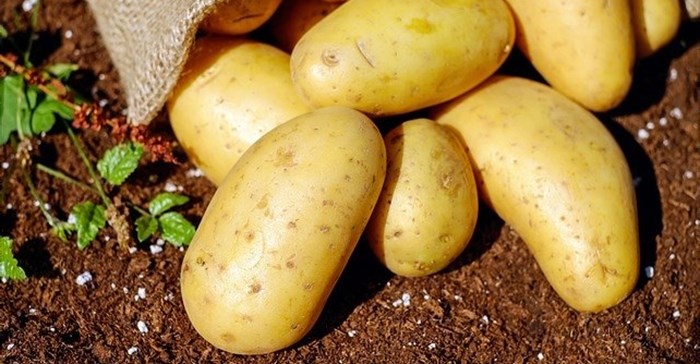
While rainfall has occurred in recent times and dam levels have improved, it will still take several months for crop yield and quality to return to normal. In some cases, up to 30% of local yields have been lost.
Potato farmers have been among the hardest hit. Many planted potatoes have had to be taken out sooner than planned due to a lack of irrigation water. This has led to fewer, smaller than average potatoes being harvested, with crops more vulnerable to malformation, secondary growth, low dry matter content and high sugar levels - all of which can render the product unusable.
Vegetable crops also saw a drop in yield and quality, with some farmers losing up to 15 % of green bean crops and 20% of carrot crops. Low soil water reserves, water usage quotas, and rising temperatures saw many farmers unable to irrigate crops effectively, leading to whole crop losses and low yields. As a result, vegetables and potato prices have soared, while import levels have ticked up sharply to keep pace with customer demand.
“McCain South Africa sources 95% of all produce locally. The drought has put a lot of pressure on our supply and demand dynamic, from all perspectives,” says Deolinda Da Costa, marketing manager at McCain Foods South Africa. “We've evolved our value chain in response, and the changes have played a key role in supporting farmers and controlling price rises for consumers.”
In addition to its own efforts, McCain has partnered with key strategic customers, who have agreed to use available and viable produce. This decision has been of significant support to supplier farmers during the crisis. “Our farmers are the backbone of our business. The drought has been incredibly tough on them and we needed to find ways to help them stay afloat,” says Da Costa. “We are very grateful for the support our strategic partners and suppliers have offered. They have allowed us to use available products instead of having to import, and this has effectively kept our farmers in business.”
McCain has initiated other internal projects to improve irrigation scheduling on farms and water efficiency within its plants. Each McCain plant has a dedicated water usage team that reviews usage results daily and proposes gap closing measures, covering aspects such as water cascading, process refinements and different process technologies. The company has also taken an in-depth look at the processes on supplier farms and identified water saving opportunities during the 'farm to fork' process.
“Our water utilisation strategy has seen a 42% reduction in water wastage at the Springs plant, and a 23% reduction at the Delmas facility over the past two years,” concludes Da Costa. “We have managed to cut down water usage significantly while maintaining the highest food safety standards, which is very pleasing considering the magnitude of the crisis.”
It will take several months for crop yields and produce quality to return to normal, and the impact of the drought will be felt for some time by farmers, businesses and consumers alike. With warmer temperatures and isolated rainfall expected over the coming months, all players will need to continue to work together to ensure crop stability and strong local sourcing.